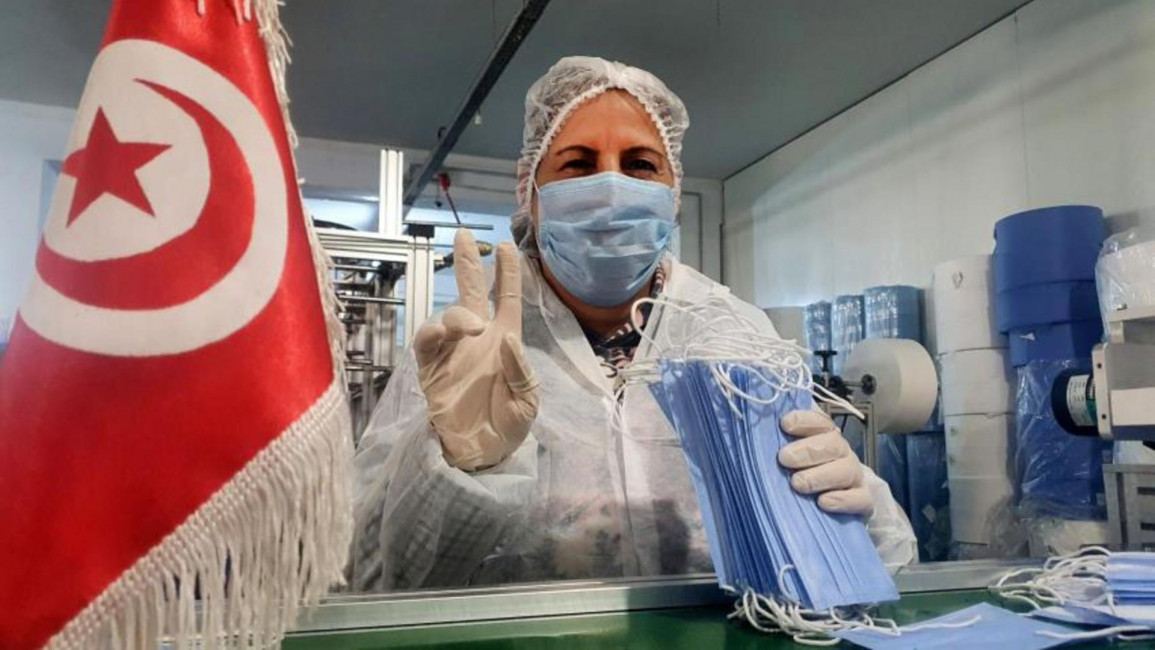'Patriotic' Tunisians self-isolate in factory to make masks for healthcare workers battling coronavirus
'Patriotic' Tunisians self-isolate in factory to make masks for healthcare workers battling coronavirus
The self-isolating factory workers are producing around 50,000 face masks a day for local healthcare workers.
2 min read
Tunisia has reported six deaths from the novel coronavirus [Getty]
More than 100 Tunisians have seperated themselves from their families and self-isolated in a factory to produce face masks for healthcare workers battling the novel coronavirus.
Employees at the Consomed factory south of the capital Tunis are churning out around 50,000 masks a day, the BBC reported.
The 150 workers, mostly women, chose to self-isolate and live in the factory for a month last week.
Manager Hamza Alouini said they were spurred on by patriotism as Tunisia battles with the coronavirus pandemic, which has killed six people so far in the North African nation.
Tunisia, which went into lockdown on Sunday, has confirmed 227 cases of the Covid-19 disease caused by the new coronavirus.
The Consomed factory normally produces face masks and other protective medical gear for export but its focus is now to produce enough for Tunisian healthcare workers.
"My husband and 16-year-old daughter supported and encouraged me to do this," worker Khawla Rebhi, who is in charge of the production line, told the BBC.
The employees have created a home away from home in the factory, which has dormitories for 110 women and 40 men, as well as stocks to last a month.
 |
| [Click to enlarge] |
"We have a designated area for all kinds of exercise and dancing for the women, and the men have a football and basketball area," Rebhi said.
"We all have internet and video chat with our families when we are not working," she added.
The staff felt the need to self-isolate in case the virus spread among workers, Rebhi explained. If employees fell ill, the factory would not be able to keep up with the demand for protective equipment from the local healthcare sector.
"If we don't work our doctors will not be protected against the virus," Alouini told the BBC.
"I'm trying to do my best for all my country - for the hospitals, for the army, for the police, for everybody."
Follow us on Facebook, Twitter and Instagram to stay connected



